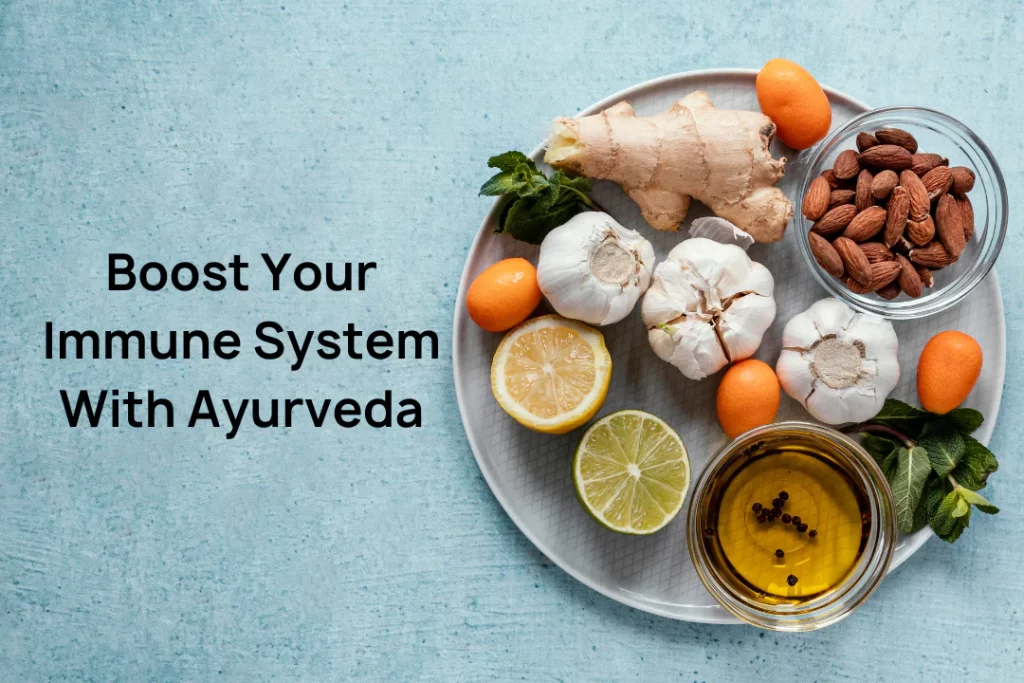Ayurveda is known as the science of life that originated more 25,000 years ago, which highly emphasizes the importance of preventing disease. It is one of the only healthcare systems that thoroughly outlines preventative measures, which is why it is called the science of life.
Ayurveda uses the word vyadhi-kshamatva to refer to immunity. Vyadhi-kshamatva is composed of two words, vyadhi (disease) + kshamatva (to resist). The word is referring to the strength of the body which resists different pathogens like bacteria and viruses. In modern times, our immune system faces new challenges from the ever-changing variants caused by the Covid virus. Vaccines do help, but do not fully protect us from these mutated viruses.
Continually, we are exposed to pathogens and modern medicine does not provide a conclusive way to prevent disease from pathogens. Now is the time to embrace the traditional methods for preventing pathogenic diseases. Traditional methods help build resistance and promote a faster recovery.
In Ayurveda, the concept of immunity is explained by the ancient Ayurveda acharya’s and vyadhikshamatva was first defined by Acharya Chakrapani in a very scientific way. He said there are two types of immunity.
- Vyadhibalavirodhatvam is the body’s ability to fight against the manifestation of diseases, this is natural immunity.
- Vyadhiutpadpratibandhkatvam is the body’s ability to prevent diseases from occurring, this is defense immunity.
Vyadhikshamatva denotes the resistant power of our bodies’ defenses to prevent the occurrence of any disease. Also, it indicates when our bodies encounter a disease, it will not allow the disease to manifest because we attain a specific power to resist the disease.
Ojas is defined as the end product from digesting beneficial nutrients and is the final pure essence of each of the saptadhatus (seven body tissues). The saptadhatus are rasa (plasma), rakta (blood), mamsa (muscle), meda (fat), asthi (bone), majja (nerve), and ending with shukra dhatu (reproductive organs). When ojas is fully depleted we perish.
There are many ways that ojas can get depleted. Chronic emotions like anger, sorrow, fear and grief, excessive exercise, excessively aggravated pitta and vata dosha, too much fasting, eating too many dry foods, overexposure to the sun and wind, excessive intake of alcohol, staying up late at night, and low digestive fire are some of the more common reasons.
Ayurveda uses another word to mean the same as ojas and it is called bala. Bala signifies our physical and mental strength and immunity resistance of our bodies. It is classified into three types of strength and resistance.
- Sahajabala is both mental and physical strength present naturally at birth.
- Kalajabala is strong due to favorable conditions like youthful age or favorable climate.
- Yuktikrutabala is strength acquired from a healthy diet, lifestyle, and rasayana therapy.
In case you do not have particularly good natural immunity you can still acquire it by following the Ayurvedic fundamental principles related to your life situation. You can improve your immunity by following proper dinacharya (healthy daily routine) and ritucharya (healthy seasonal routine). It is important to know your body’s strength can always be improved by following a healthy Ayurvedic diet and lifestyle.
There is one other method that helps improve immunity and it is by taking rasayana herbs. They are a special category of herbs that help improve strength and immunity. These herbs should be taken for both prevention and during illness from pathogens. Even after recovering from illness, it is important to continue taking these herbs because they help rebuild ojas and bala.
